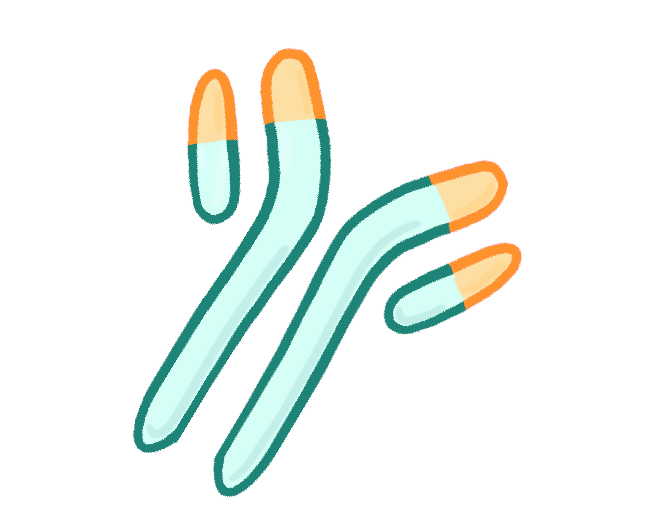Monoclonal Antibodies
This lesson covers:
- What 'monoclonal antibodies' are
- How monoclonal antibodies are made
- The uses of monoclonal antibodies
What are monoclonal antibodies?
Antibodies made from clones of a single type of cell
Antibodies made from different types of cells
|
Recap of antibodies
antibodies / antigens / destruction / lymphocytes
- Antibodies are small proteins produced by special white blood cells called B-.
- They bind to on the surface of foreign material, such as bacteria.
- This marks the foreign material for by our immune system.
|
Where are monoclonal antibodies made?
In pathogens
Inside our body
In a lab
|
Steps in producing monoclonal antibodies
purify / immune / plant / animal / hybridoma / monoclonal / petri
- Inject an , like a mouse, with the antigen that we want our antibodies to bind to.
- Let the animal develop an response, and then isolate some of their B-lymphocytes (which will produce the antibody we want).
- Combine those B-lymphocytes with fast-dividing tumour cells to form cells.
- Let these hybridoma cells divide rapidly in a dish.
- Collect and the antibodies they produce
|
Which substances from the list below can we attach to the bottom of antibodies in order to locate or destroy specific types of cells?
(Select all that apply)
Drugs
Viruses
Radioactive material
Fluorescent proteins
|
Which of the statements about monoclonal antibodies below are true?
(Select all that apply)
Monoclonal antibodies are produced from one antibody-producing cell
Monoclonal antibodies are collections of different antibodies
Monoclonal antibodies are identical copies of a single antibody
Monoclonal antibodies are produced from clones of one antibody-producing cell
|
What do antibodies bind to?
Any hormones
Hormones with a complementary shape
Antigens with a complementary shape
Any antigens
|

What type of cell produces antibodies?
B-lymphocytes
Phagocytes
Red blood cells
|